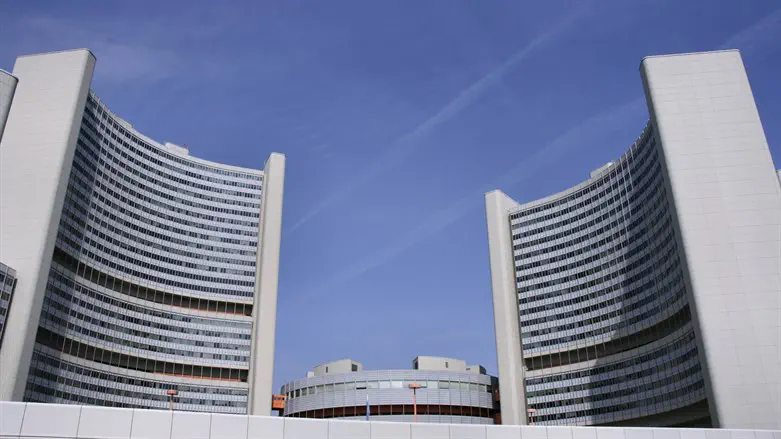
Britain, France and Germany -- collectively known as the E3 -- on Monday submitted a resolution to the International Atomic Energy Agency’s (IAEA) Board of Governors, censuring Iran over its lack of cooperation with the agency, diplomats told AFP.
"The text has been formally tabled," one diplomatic source said.
Last week, three diplomats told Reuters that Britain, France and Germany appear determined to push their resolution despite opposition from their US ally.
Reuters reported on May 24 that the US and its European partners were divided over whether to confront Iran with Washington fearing such a resolution could risk further escalation in the region and rock the boat ahead of November's US election.
"We are pushing the Americans, but they remain stuck in the thinking that nothing should be done to escalate with Iran," said a senior European official. "That has achieved nothing so far and we believe we need to show firmness now."
The IAEA released a report at the end of May which found that Iran has further increased its stockpile of uranium enriched to near weapons-grade levels.
The report said that as of May 11, Iran has 142.1 kilograms of uranium enriched up to 60% — an increase of 20.6 kilograms since the last report by the UN watchdog in February. Uranium enriched at 60% purity is just a short, technical step away from weapons-grade levels of 90%.
By the IAEA’s definition, around 42 kilograms of uranium enriched to 60% is the amount at which creating one atomic weapon is theoretically possible — if the material is enriched further, to 90%.
Previously, the IAEA found that, between June and November last year, Iran slowed down the enrichment to 3 kg per month, but that jumped back up to a rate of 9 kg at the end of the year.
The increase came soon after Tehran barred a third of the IAEA's core inspections team, including the most experienced, from taking part in agreed monitoring of the enrichment process.
That move was part of Iran’s scaling back of its compliance with the 2015 nuclear deal it signed with world powers, in response to then-US President Donald Trump’s withdrawal from the deal in 2018.
Even though Iran has continued to significantly ramp up its nuclear program since then, the IAEA's board has refrained from a censure.
At the last board meeting in March, European powers decided to shelve their plans to confront Iran due to a lack of support from Washington.

